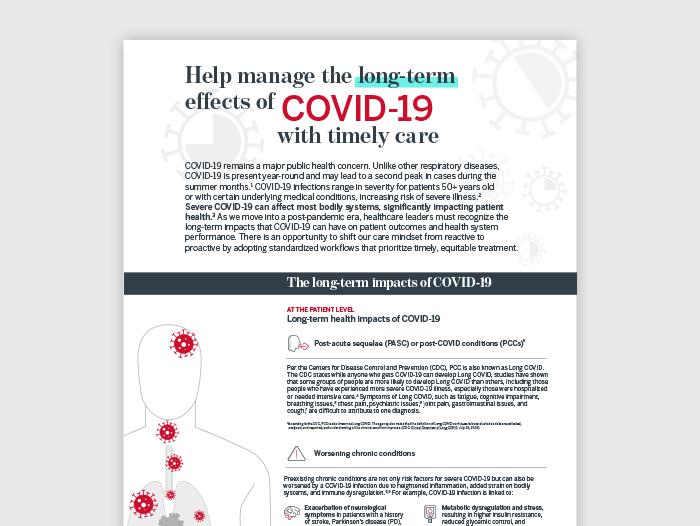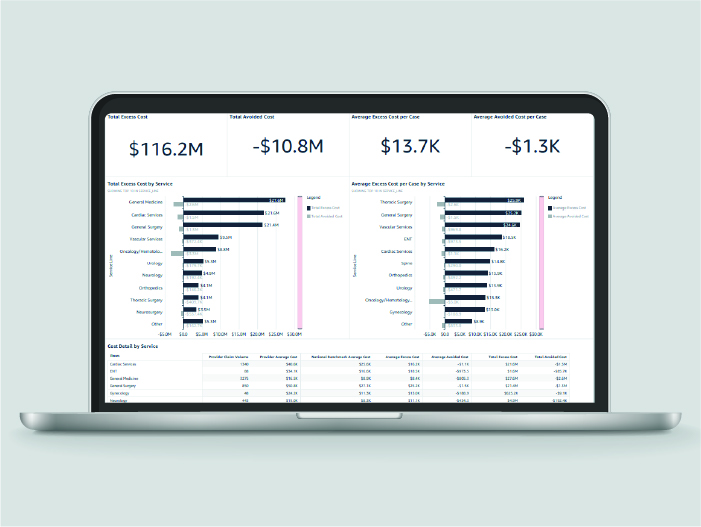Auto logout in seconds.
Continue LogoutWriting for Modern Healthcare, Mari Devereaux explains the efforts three health systems are taking to address adverse safety events.
- Penn Medicine: To prevent communication errors that could lead to missed, delayed, or incorrect treatment, several Penn Medicine hospitals have implemented a digital workflow and collaborative care platform called CareAlign. The platform provides clinicians with real-time data on patients' vitals, labs, handoff notes, and EHR information. Since it was first rolled out at Penn in 2016, most clinicians using the technology say they have been able to prevent errors or sentinel events. CareAlign has also helped the health system improve patient experience scores, as well as its performance on quality metrics, such as the number of unplanned readmissions within 30 days.
- WellSpan Health: In 2019, WellSpan gathered nursing leaders, infection preventionists, and physicians to create easy-to-follow, evidence-based, standardized care processes aimed at decreasing adverse events. "We spent a lot of time educating people that almost every significant event is the result of a poorly designed process versus an individual error," said Mike Seim, the system's SVP and chief quality officer. "If it happened to one person, it could probably happen to multiple people." During daily huddles, staff can voice patient safety concerns that then get passed on to facility leaders and system executives. If an adverse event occurs, WellSpan has a "stop the line" call with leaders and other staff members to contain the issue, and immediate short-term changes are implemented to ensure the error doesn't happen again. Between 2019 and 2022, the number of reported safety events has doubled to 40,000, and the number of serious events has decreased by more than 50%.
- Sanford Health: According to Jeremy Cauwels, Sanford's chief physician, the organization encourages its employees to ask questions and learn from any issues in communication and patient care. This has instilled a sense of responsibility to reduce adverse events among the organization's staff. "It's really just a culture of transparency," Cauwels said. "You have to be willing, from the CEO all the way down, to say that we are going to talk about the [adverse] events that happen within our walls and we're going to do everything we can to prevent them." At Sanford, all daily huddles and clinical floor meetings start with a story about an adverse safety event. All adverse events are also reported to staff to track progress and successes. For example, one of Sanford's medical centers recently set an internal record by going over 70 consecutive days without a serious safety event. (Devereaux, Modern Healthcare, 10/5)
Innovative cross-continuum technologies, like AI and XR, are currently underutilized but have immense opportunity to shape patient care. Learn how to maximize the potential of these innovations and explore examples of their use in diagnostics, treatment, and management.
Don't miss out on the latest Advisory Board insights
Create your free account to access 1 resource, including the latest research and webinars.
Want access without creating an account?
You have 1 free members-only resource remaining this month.
1 free members-only resources remaining
1 free members-only resources remaining
You've reached your limit of free insights
Become a member to access all of Advisory Board's resources, events, and experts
Never miss out on the latest innovative health care content tailored to you.
Benefits include:
You've reached your limit of free insights
Become a member to access all of Advisory Board's resources, events, and experts
Never miss out on the latest innovative health care content tailored to you.
Benefits include:
This content is available through your Curated Research partnership with Advisory Board. Click on ‘view this resource’ to read the full piece
Email ask@advisory.com to learn more
Click on ‘Become a Member’ to learn about the benefits of a Full-Access partnership with Advisory Board
Never miss out on the latest innovative health care content tailored to you.
Benefits Include:
This is for members only. Learn more.
Click on ‘Become a Member’ to learn about the benefits of a Full-Access partnership with Advisory Board
Never miss out on the latest innovative health care content tailored to you.


